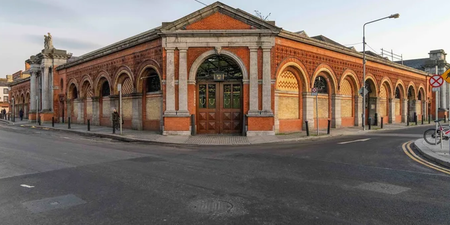After the initial engagement excitement has calmed down a bit, you’re going to start thinking about what getting married actually entails. We’re talking the legal stuff people.
So whether you’re opting for a humanist, a religious – we’re going to look at Catholic, as they’re the most common in Ireland – or a civil ceremony, this is a pretty good place to start you on the right track.

Civil ceremony
- Firstly, you need to make an appointment to see the Registrar local to the place you want to marry.
- You must give at least three months’ notification of your intention to marry – we would suggest doing it a good bit sooner however, just to get it ticked off your list.
- Before you attend your appointment, contact the Registrar for a Marriage Notification Data Form, which they can email you so it can be filled in prior to attending. They will also send you a checklist, so you can prepare all the documents and information you will need on the day.
- You will need your passports, or other allowed ID, and photocopies, and your original birth certs and copies of each (if you’re not born in Ireland you’ll need an apostille stamp from the Embassy of origin). You will also need to give the name of your solemniser and your venue.
- If you’re not getting married in the registry office you will have to ensure your venue is approved for your ceremony – this means it fits the HSE’s criteria for such an important occasion. If you’re not sure, contact your Registrar.
- The fee is €200, but if you’re getting married in a venue away from the registry office it’s a bit more, as the Registrar will be making the trip to marry you. I got married a few miles away from the registry office in an approved venue and it was €320.
- In the past few years it became legal to get married outdoors in the grounds of certain venues. Again, ask your registrar if unsure.
- Remember that HSE staff only work Monday to Friday, so Registrars will only be available to perform a weekday civil ceremony.
- For more information and a list of contacts, visit the HSE’s Birth, Deaths and Marriages section here.

Catholic ceremony
- Firstly, contact the church you want to get hitched in to check if they can accommodate you. Each church has different ‘rules’ – for example some churches only hold ceremonies for couples living in the locality.
- It’s up to you to arrange a priest to officiate your ceremony, so make contact with the church’s priest(s) to ensure one is available.
- If there is a priest in your family or a particular priest you want to officiate, contact the church first to check it’s a goer.
- The head wreck bit is getting your documents sorted – of which there are many. You will need six docs in all – a new long form baptismal cert issued within six months of your wedding, a pre-marriage course certificate of completion, a copy of your confirmation certificate, a pre-nuptial enquiry form completed by the priest and Proof of Freedom to Marry, which is a Letter of Freedom from your local parish.
- Just like with the civil ceremony, you will need to notify the HSE at least three months before your wedding of your intention to marry. As well as the previous documents mentioned in the civil ceremony section, you will need to tell them the date and location of the ceremony and the priest’s name.
- Check The Catholic Directory for an extensive list of all the churches in Ireland as well as addresses and contact details.

Humanist ceremony
- If you weren’t too sure, a humanist ceremony is indeed legally binding if conducted according to the Civil Registration Act 2004. This has only been the case since 2012 mind you.
- You must have an accredited solemniser perform the ceremony. You can find a handy list here.
- It’s advised to book your solemniser well in advance, as there aren’t a huge amount of them in Ireland and they can be booked out, particularly over the popular wedding months.
- Again you must give at least three months’ notice to the HSE and go through the appointment process.
- Just like the civil ceremony, your venue must be approved by the HSE. If you’re not sure, get in touch and confirm.
- You can find more information at the Humanism Association of Ireland.
READ NEXT: 30 Questions You NEED To Ask Your Partner Before Getting Married
Topics:
RELATED ARTICLES






MORE FROM Lovin Dublin
























MORE FROM Lovin Dublin




















